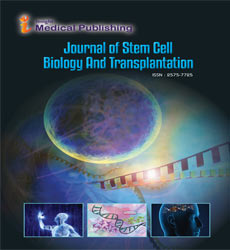ISSN : 2575-7725
Journal of Stem Cell Biology and Transplantation
The breast cancer and the perioperative window
Abstract
Most current research in cancer is attempting to find ways of preventing patients from dying after metastatic relapse. Driven by data and analysis, this project is an approach to solve the problem upstream, i.e., to prevent relapse. This project started with the unexpected observation of bimodal relapse patterns in breast and a number of other cancers. This was not explainable with the current cancer paradigm that has guided cancer therapy and early detection for many years. After much analysis using computer simulation and input from a number of medical specialists, we eventually came to the conclusion that the surgery to remove the primary tumor produced systemic inflammation for a week after surgery. This systemic inflammation apparently caused exits of cancer cells and avascular micrometastases from dormant states and resulted in relapses in the first 3 years post-surgery. Two animal studies agree with these findings It was determined in two retrospective studies that the common inexpensive perioperative NSAID ketorolac could curtail the early relapse events after breast cancer surgery. Ketorolac is routinely used at the surgeon’s option either before or after breast cancer surgery at Beth Israel Deaconess Medical Centre. Based on what we now know, surgeons and anesthesiologists should take extra efforts to reduce systemic inflammation during the perioperative window.
Open Access Journals
- Aquaculture & Veterinary Science
- Chemistry & Chemical Sciences
- Clinical Sciences
- Engineering
- General Science
- Genetics & Molecular Biology
- Health Care & Nursing
- Immunology & Microbiology
- Materials Science
- Mathematics & Physics
- Medical Sciences
- Neurology & Psychiatry
- Oncology & Cancer Science
- Pharmaceutical Sciences
